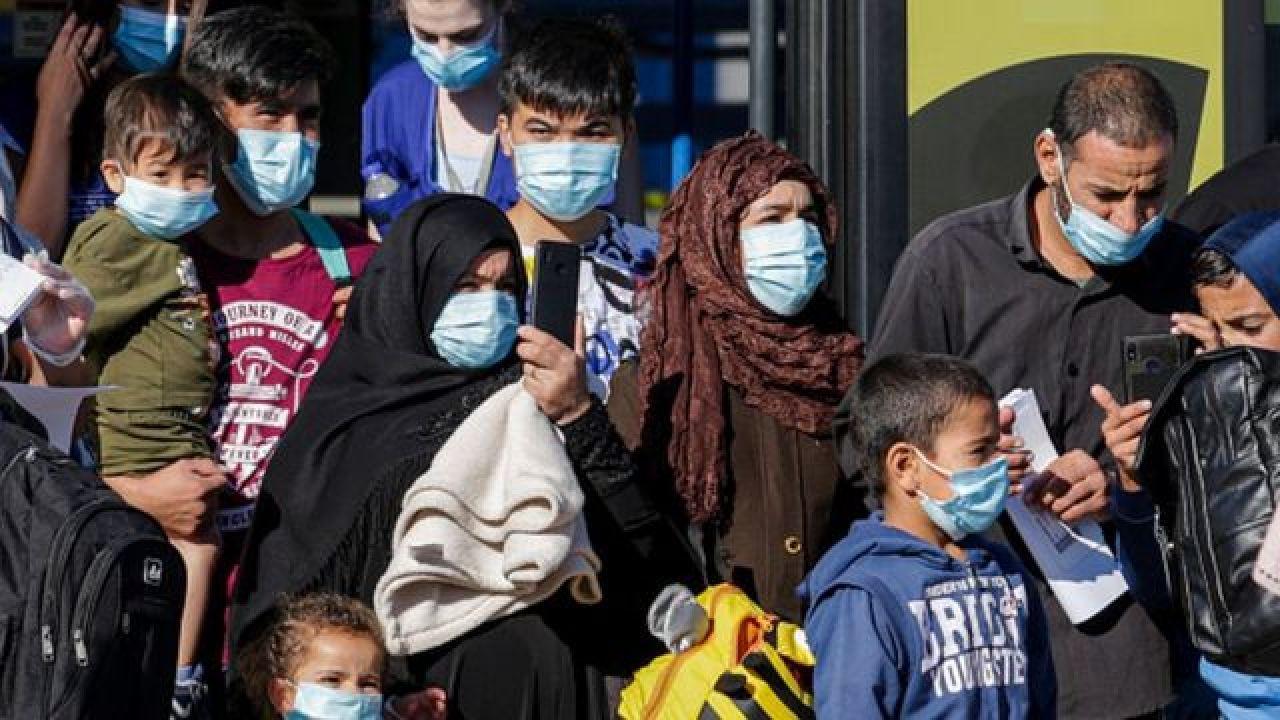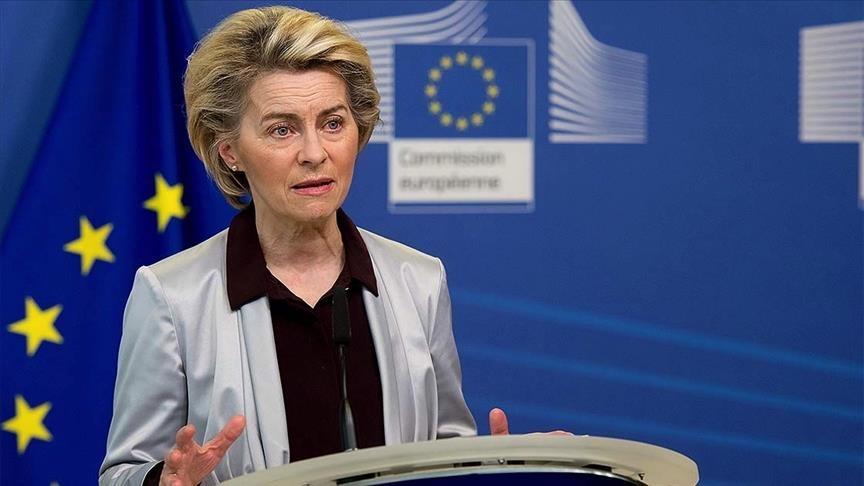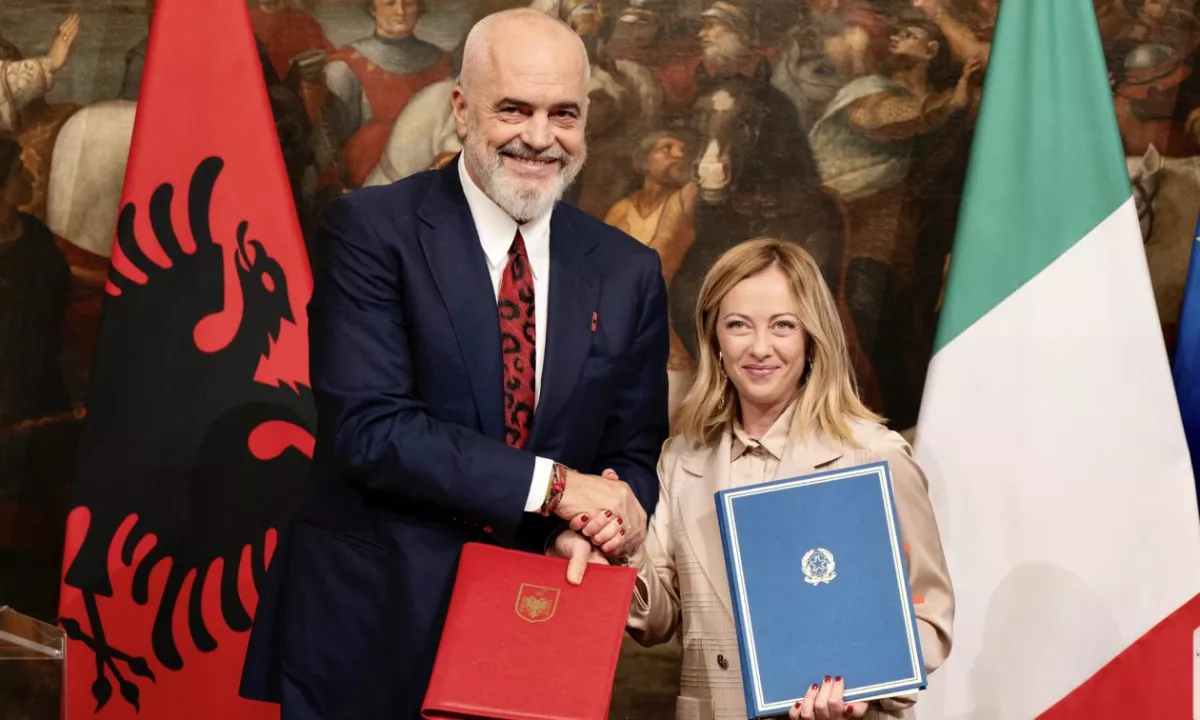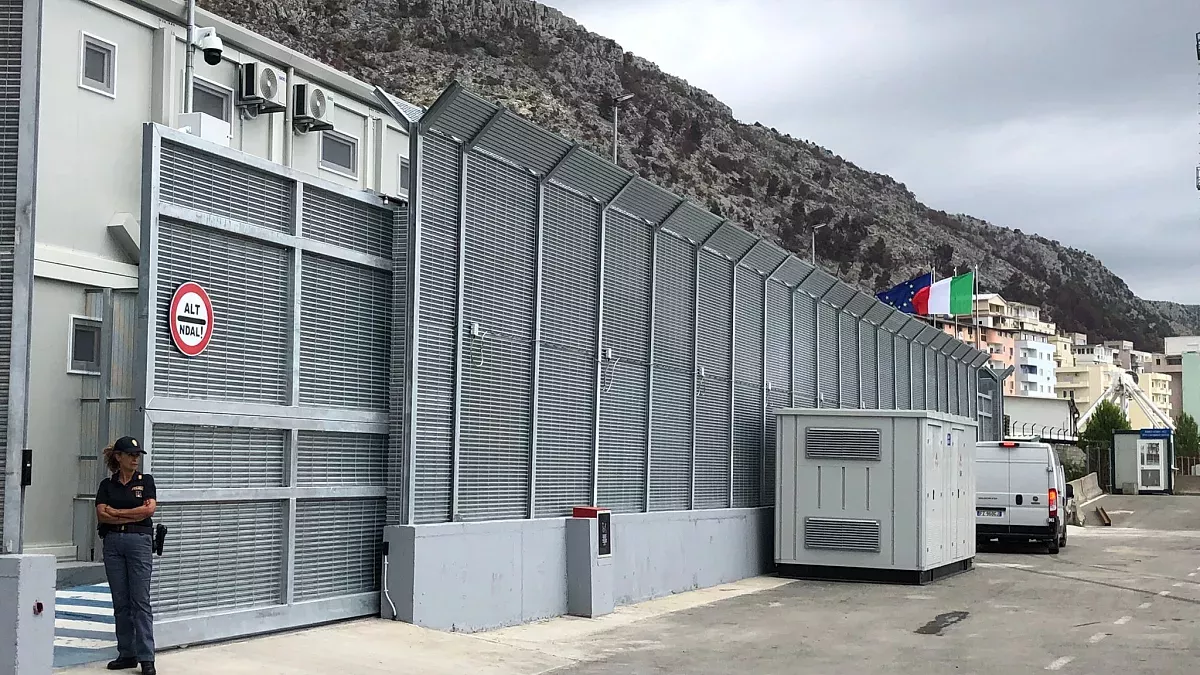EU: Migrants are not welcome here Outsourcing asylum to “safe third countries”
The European Commission has proposed deporting migrants to "safe third countries." Are the advocates of "human rights" planning to create ghetto states?
What’s new is well-forgotten old: placing "second-class" people in specially designated areas has already happened in European history — both in the Middle Ages and in modern times.
Safety on their side
At the end of May, the European Commission, chaired by Ursula von der Leyen, finalised changes to refugee rules. The EU has long been developing measures to tighten migration policy, and this time a new tool in the fight against migration is the "safe third country" (STC) concept.
The European Commission does not intend to completely close the borders, as that would contradict the liberal ideology and the Western employers’ need for cheap labour. However, Euro-bureaucrats, in their typical casuistic manner, have decided to take a different path. Now asylum seekers can be easily turned away at the EU borders — to “safe third countries.” The stated goal is noble: it will “accelerate asylum processes and reduce pressure on asylum systems, while preserving legal safeguards for applicants and ensuring full respect of fundamental rights.”

The rules currently in effect already allow EU countries to reject refugees if they have the possibility of receiving protection in a third country. But now it is necessary to prove a connection between the asylum seeker and such a “third” country. Additionally, these countries must guarantee that refugees will not be deported to their home country or face threats based on race, religion, nationality, and so on. Also, an appeal against a decision to deport to a third country automatically suspends the deportation today.
But with the changes to the rules recently proposed by the European Commission, everything will be different:
-
The requirement for a connection between the asylum seeker and the safe third country will no longer be considered mandatory. Even a short stay in such a country will be sufficient proof of a "connection" to it.
-
Transit through a safe country before entering the EU will be considered a valid reason to return the asylum seeker to that country.
-
Under this simplified scheme, refugees may also be sent to any third country with whose authorities the EU has managed to conclude an agreement.
Only unaccompanied minors cannot be deported to such countries, but there is no mention of a ban on separating families. Furthermore, asylum seekers will still be able to appeal the decision to redirect them to a third country, but such appeals will no longer suspend the decision and will effectively become a mere formality.
The guiding principles of the United Nations High Commissioner for Refugees (UNHCR) recommend that the asylum seeker have a connection with the safe third country. However, the European Commission in its current amendments stated that the requirement for a refugee’s connection to a third country is not provided for under international law.
A special clause in the new amendments to the EU refugee regulations states that if there is a risk that an asylum seeker may evade deportation to a “safe third country,” restrictions on their freedom of movement or detention may be applied. In practice, this means that most asylum seekers under this simplified concept could be immediately deported from EU territory. In fact, this is exactly what the European Commission is proposing: “The safe third country concept allows Member States to consider an asylum application inadmissible when applicants could receive effective protection in a third country that is considered safe for them.”
The “Albanian model” for the EU
It is obvious that all these points will soon be approved by the European Parliament and the Council. Of course, left-wing parties will oppose them. But the majority of the European Parliament, made up of conservatives, far-right members, and some liberals, will gladly vote “yes.” After all, it was the centre-right European People’s Party (EPP), which holds the largest faction in the European Parliament, that developed this reform — the very reform Ursula von der Leyen campaigned on.

At the same time, the conservatives claimed they were tightening refugee rules to stop the threat of the far right. However, in practice, it was the far-right leader Giorgia Meloni, heading the Italian government, who first implemented this model. Moreover, Italy’s experience with placing refugees in third countries cannot be called successful from any angle.
In October 2024, Italy became the first country to host refugees outside the EU — in neighboring Albania. Tirana agreed to accept up to 36,000 people per year. The staff at the specially built “migrant processing” centres were Italian, but the security was provided by Albanians. Italians began transporting refugees caught at sea to these centres by military ships, where they had to wait for their asylum applications to be processed.

The opposition Albanian Democratic Party filed a lawsuit with the Constitutional Court, claiming that the agreement with Italy compromised Albania’s sovereignty over part of its territory. However, the court rejected the claim. Human rights activists also argued that it would be difficult for Italian courts to promptly review petitions and appeals from individuals deported to another country, while applicants would meanwhile languish in camps. The UN also criticised this deal, but the European Commission approved such a practice. Fifteen EU countries immediately supported this model, and Czech Prime Minister Petr Fiala called the Italian scheme a benchmark.
Italian Prime Minister Giorgia Meloni did not hide the fact that placing refugees in Albania, one of Europe’s poorest countries, would serve as a deterrent to illegal migration. Human rights advocates, in turn, called it a kind of deterrent method aimed at asylum seekers.
However, the first group of refugees from Egypt and Bangladesh, brought to Albania to be deported to their home countries, was returned to Italy. Meloni’s government considers these countries safe. But the Italian court referred to a ruling by the European Court of Justice stating that a country cannot be deemed safe if threats exist on any part of its territory. Italian courts referred these disputes to the European Court for further clarification. These legal inconsistencies have paralyzed the operation of the “migrant processing” centres in Albania, which have effectively been idle lately.
Meloni was outraged and called on the European Court to clarify these “ideologically motivated judicial measures.” To circumvent legal obstacles, her government issued a decree transforming the camps in Albania into “repatriation centres.” Ursula von der Leyen also publicly supported Meloni’s “Albanian model,” which largely became the basis for the current reform of EU refugee legislation.
Hence, the European Commission’s current proposals to significantly lower the safety requirements for third countries. Now, a country can be deemed “safe” in parts, with exceptions for certain areas of its territory or clearly defined categories of persons. In extreme cases, a territory could be declared “safe” even if it is simply a refugee reservation behind barbed wire with guards on the perimeter. Furthermore, according to the latest proposed amendments, “safe third countries” may not even be parties to the Geneva Convention on human rights.
At the same time, countries with which the EU has signed strategic cooperation agreements will automatically be considered safe. Based on the list of the EU’s strategic partners, asylum seekers could theoretically be redirected to Russia, China, or Mexico (where in recent days more people have been killed in the drug cartel wars than in the Israel-Iran conflict). Additionally, EU member states will be allowed to independently find “safe countries” outside the EU’s common list for redirecting migrants.
In April 2025, the EU recognised Colombia, Bangladesh, Egypt, India, Morocco, and Tunisia as safe third countries. It is difficult to say what criteria Brussels officials used when naming Colombia — a country with extremely high levels of both criminal and political violence — as safe.

The cost of the project between Italy and Albania amounts to 600 million euros. In addition, the Italian government has promised to assist Albania in its EU accession process. It is likely that similar incentives will be used in Brussels to gain the consent of other countries to host refugees on their territory.
At the same time, EU countries themselves are increasingly toughening their stance toward migrants from the Global South. In May, Germany’s coalition government of conservatives and social democrats allowed asylum to be denied directly at the border, family reunification to be stopped, and refugees to be deported to Syria.
In France, deportations increased by 27% in 2024, while Poland, with EU approval, has completely suspended the right to asylum.
Another cynical attempt
Meanwhile, in 2024, the number of illegal migrants in the EU decreased by 38%, marking the lowest level since 2021. However, these unprecedented measures to tighten refugee rules are being adopted under intense pressure from nationalist sentiments among European voters, opposition far-right parties, and right-wing populists who already hold executive power.

Human rights defenders criticise the current changes to refugee admission rules and the concept of safe third countries. In their view, these violate the much-touted European values, including the human right to protection and the provision of safe asylum, as well as international refugee law, which establishes that the primary responsible party is the country to which the applicant first applied for help. Moving refugees to third countries with which they have no connection can lead to a range of serious problems, including arbitrary detention and deportation to states where they were previously in danger.
On the other hand, this practice shifts responsibility for refugees onto poorer countries outside the European Union, effectively subcontracting these issues to them. Olivia Sundberg Diez, an Amnesty International lawyer for migration and asylum issues in the EU, stated: “These proposals are yet another cynical attempt to evade the EU’s refugee protection responsibilities…” Sending people in need of asylum to “third countries” with far fewer resources and capabilities will seriously worsen their situation and exacerbate the humanitarian crisis.
UNHCR data show that 71% of refugees worldwide are already hosted in low- or middle-income countries. Moreover, by trying to avoid the rise of far-right threats at home, such EU policies risk igniting nationalist sentiments in neighbouring countries. However, the double standards long practised at the court of “Old Europe” have already become proverbial…








